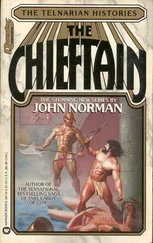He looked about the tables. Yes, he had many sons. Two were Ingeld and Hrothgar.
Are they loyal, wondered Abrogastes.
His favorite had been Ortog.
Hrothgar is simple, and cares for little but drink, and his horses and falcons, thought Abrogastes, and I do not fear him, but Ingeld is silent, and keeps his own counsel. His eyes are restless.
I have never seen Ingeld drunk, he thought. If one is to be feared, it must be Ingeld. But Ingeld, he thought, did not seem likely to be a giver of rings. Men did not understand him. They did not seek out his hall. He was not, like Ortog, a leader, the likely founder of a line, a laughing, insouciant prince, one for whom hearty men would willingly die.
“Yes,” said the addressed nobleman. “Perhaps that is the purpose of the feast, to commemorate the defeat of the secessionists.”
“No,” said another. “That was done long ago, on the ships.”
“What then is the purpose of the feast?” asked one of the noblemen.
“I do not know,” said the man who had spoken.
“It must be of great importance,” said one of the noblemen. “See who is here, so many, from so far!”
“Yes,” said another.
“I have many sons,” had said Abrogastes.
He had then cleaned the knife.
It was even now in its sheath, at his side.
It is hard to know, thought Abrogastes, when one might need such a thing.
“Milord?” inquired one of the noblemen of Abrogastes, the Far-Grasper.
“Feast,” said Abrogastes, who had heard their conversation.
“Yes, milord,” said the man.
“Drink!” called another.
And one of the former ladies of the empire hurried to him, to humbly, head down, her hair falling about the flagon and vessel, fill the giant drinking horn.
As she leaned forward, between the feasters, she dared not protest the hand upon her flank.
Abrogastes looked at the former ladies of the empire serving the feast.
It was no mischance or coincidence that they were there, and as they were.
He wanted the feasters to see them thusly, former ladies of the empire, now serving.
Surely they were no different from other women.
And surely they were not without interest.
These things were in accord with his plan.
To his left, he felt a soft cheek press itself to his boot. He did not, this time, thrust it to the side, angrily.
He heard a tiny, grateful whimper.
He felt tender kisses pressed against his foot, through the fur of the boot.
The pet at his feet, to his left, did not know why it had been brought to the feast.
It was fearful.
It whimpered.
There was a reason, of course.
Abrogastes gave no sign that he was aware of the pathetic, tender pressings of lips on his boot.
It is better, sometimes, that such things not be deigned to be noticed.
That helps the pet to better understand all that it is.
Later Abrogastes moved his foot to his right, away from the small, soft, chained object at his feet, its head to his left boot.
As we have mentioned, there was a reason for its presence at the feast.
It was, too, a part of the plan of Abrogastes.
“I am detained, unaccountably,” said Julian, of the Aurelianii, to Otto, chieftain of the Wolfungs.
“I will go ahead,” said Otto.
They stood on a loading dock, one of dozens at Point North, some nine miles north of Lisle, on Inez IV. Even so, the departure of the ships, several times a day, like thunder, could be heard in the city.
Men, some carrying burdens, some with carts, hurried about them, under the supervision of officers, placing supplies in the hold.
“It is unexpected business at court,” said Julian. “I will follow you as soon as possible. Do not proceed without me. Wait for me at Venitzia.”
Otto had no intention of waiting at Venitzia.
Hoverers were already loaded.
“Way, way!” said a longshoreman, parting crowds for a treaded vehicle drawing flat trailers loaded with boxes.
Too, if it must be known, Julian, even though delayed, had no intention of proceeding directly to Venitzia, the provincial capital on Tangara. It was his intention, rather, to visit an obscure festung village on Tangara, one at the eastern edge of the plain of Barrionuevo, at the foot of the heights of Barrionuevo, one in tithe to the remote festung , or fortress, of Sim Giadini, far above it, massive, but seemingly tiny from the plain, almost invisible amongst the dark, forbidding, snow-capped, cloud-encircled mountains, the heights of Barrionuevo.
“I will get away as soon as I can,” said Julian.
Otto nodded.
The vehicle drawing the trailers passed them, moving toward the cargo hatch.
Through another hatch, reached from a loading platform below, visible through the grille on which they stood, by means of trailers drawn by rumbling, motorized carts, gigantic drums of fuel were being taken aboard.
They were on the second hatch level.
Crew, and passengers, would ascend to the higher level, and board through the smaller entry way.
“Watch out!” called a man.
There was a roaring and a scratching and men struggled to lead wild-eyed mounts through the hatch.
“Be gentle with them!” cried Julian.
We shall call these creatures horses, for the sake of simplicity.
Otto snatched a canvas from one of the carts near him and cast it over the head of the first of the skittish animals. It pawed and scratched at the grille, and cast its long-haired head about, beneath the canvas, and then stood uneasily on the grille, shifting a little, snarling.
“Ho, fellow,” said Otto, quietly, patting the creature’s shaggy side, “ho!”
He then seized the halter, taking it higher than its groom’s grip, near the jowls of the beast.
“Ho,” he said again, gently.
“You may take him now,” said Julian to the groom.
Otto relinquished his hold on the halter.
The groom then took the halter higher, where Otto had held it, his arm under the canvas.
The groom then led the unprotesting animal through the hatch, into the ship.
The beasts behind the first, seeing the first quiet, the contagion of their anxiety thus assuaged, seemingly contentedly, seemingly now unconcerned, followed it into the ship.
“Put them carefully in their stalls,” called Julian.
“Yes, sir,” said a man.
The stalls for such beasts are commonly padded, as they are restless, energetic animals, and may injure themselves when they become active, as, for example, when they smell a female of their species.
“Where did you learn the business with the canvas?” asked Julian.
“In the school of Pulendius,” said Otto. “It is a common way of quieting female prisoners. But a blanket, not canvas, is commonly used.”
“I see,” said Julian.
“It may be buckled about their waist, tightly, their hands inside.”
“Of course,” said Julian.
The blindfold, too, of course, has such virtues. It may not silence the captive, but it tends to reduce her activity, as she does not know where she is, or where she might step, or what dangers lie about her, or, say, what she might strike against, or how she might injure herself if she were to move, and so on. She would not care, for example, to run against spikes or plunge, bound, into a pond of carnivorous eels. If one wishes to silence the captive, of course, a variety of arrangements can manage that easily.
“Prisoners?” asked Julian. “At the school of Pulendius?”
“They are rounded up, occasionally. Girls of the humiliori , of course, unless a mistake is made.”
“I had not heard of this,” said Julian.
“The practice is not widely publicized.”
Читать дальше












